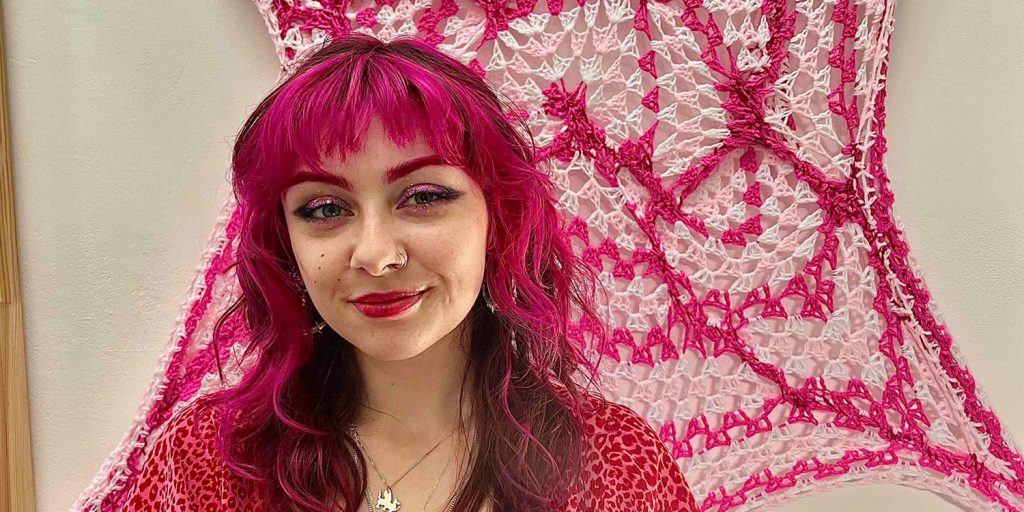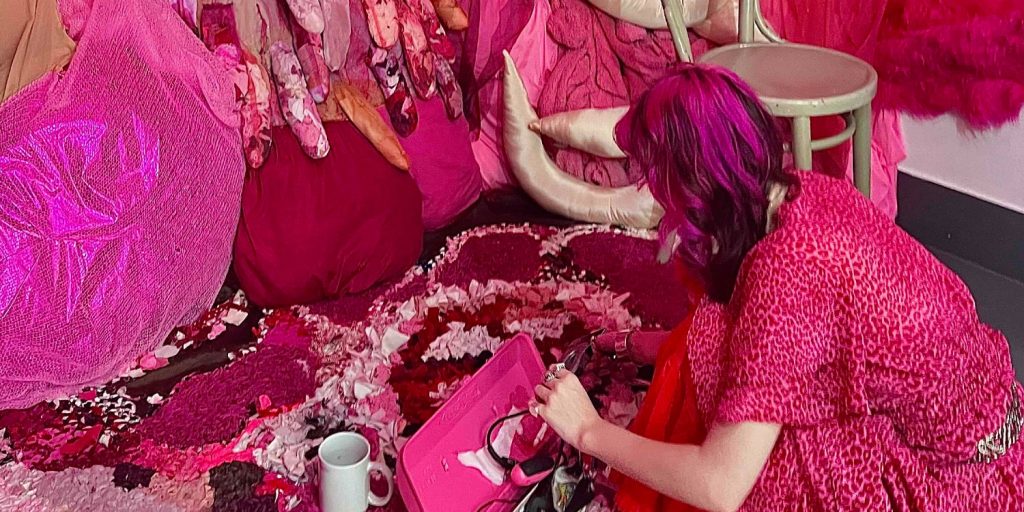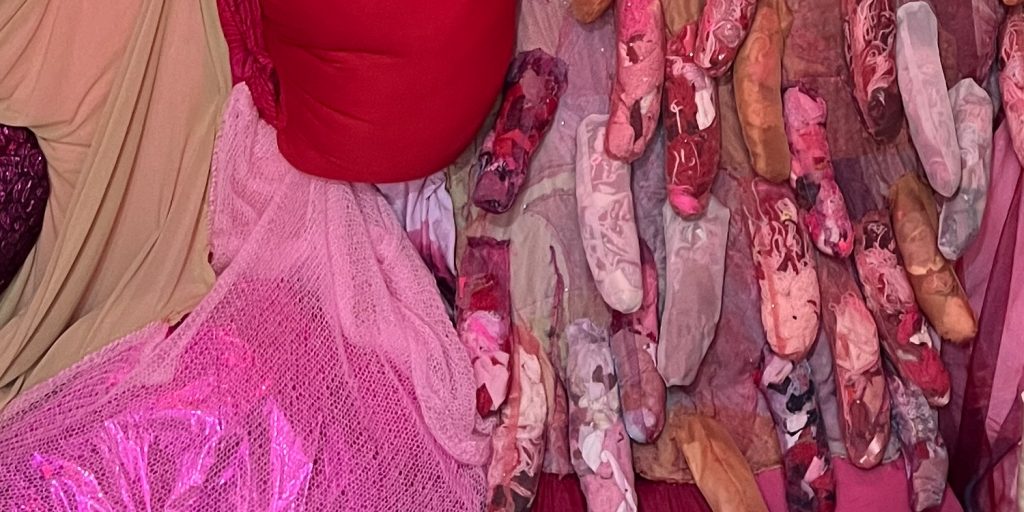Roath-based artist Delphi Campbell pushes back against traditional stereotypes surrounding disability and menopause

At 16-years-old, Delphi Campbell spent a lot of time in hospital and art became a way of helping her mental health and self-image. During university, she began to receive the “long list” of diagnoses that contribute to her disability and started to explore self-portraiture.
Now, the 26-year-old artist is hosting her first major exhibition Unwanted Flesh, in the MADE gallery, Roath.
Campbell says: “Something hugely important to me in creating my artwork is the opportunity to reclaim my own story.”
The soft-sculptures in the exhibition are based on medical images from her diagnoses, and showcases her experience of menopause.
Overcoming ableism
Campbell is dressed head-to-toe in pink, blending into the enormous soft-sculpture cave in her exhibition.
She explains that creating artwork has been hugely important to her in reclaiming her own story.
Campbell finds there to be a media narrative that disabled people bravely overcome their disability, she condemns this as “so tired”.
We have rich, beautiful, joyous lives, just like anybody else
While there are pains and frustrations with disability, she explains that the true struggle is often with ableism.
“I haven’t overcome my diseases to be here, I have overcome the fact that a lot of galleries aren’t wheelchair accessible” she adds, a little exasperated.
Campbell’s fingers are decorated with silver rings that click together as her hands become increasingly animated about the subject.
“We have rich, beautiful, joyous lives, just like anybody else” the artist says.
Campbell explains her love of the colour pink
Campbell went from able-bodied to invisibly disabled, and she is now physically disabled.
She said this transition exposed her to a whole realm of ableism: from fighting to prove that she was ill enough to warrant a seat on the bus, to being infantilised while using her wheelchair.
The artist remembers times when someone commended her for going to the shops or buying a pair of knickers.
“It’s insane,” she exclaims, “you wouldn’t say that to any other 26-year-old.”
Campbell’s artwork is pink and flamboyant and provides a representation of her disabled body which pushes back against the portrayal of disability as “inherently sad”.
“I like to be able to show the beautiful side of disability, as well as the complex, grotesque, ableist side” she says.

Medical menopause
The 26-year-old’s latest exhibition was created while going through medically induced menopause, a treatment for her severe endometriosis.
In contrast to the vibrant pinks in her exhibition, Campbell has found the experience to be “quite isolating” and “near impossible” to talk about.
She adds: “I don’t know anyone else who has gone through menopause in this way.”
Campbell explained that resources for the subject are often catered towards cis women in their 50s and 60s who have had babies, which affects how you experience menopause.
“Most of my friends are either having babies or going through that weird second puberty that no one talks about” she adds, bemused by the hormonal changes young women go through in their 20s.
The artist explained that medically induced menopause has no natural build up.
“It’s like being hit by a train overnight, which is super fun” Campbell adds sarcastically.
“It has been strange losing the experience that you are told makes you a woman, even though my periods were extremely painful and,” she adds with a laugh, “didn’t even make me fertile!”

Delphi’s tips on how to find your style as an artist:
1. Make as much as you are able to.
2. Spend time in the creating without a specific outcome in mind. It is easy to get caught up in the idea of a perfect outcome and sometimes it’s more rewarding to just play.
3. Experiment as much as you can.
4. Workshops run by arts organisations like MADE and Umbrella are amazing ways to try new mediums without shelling out for brand new materials and tools.
5. Visit as many exhibitions and shows as is possible.
